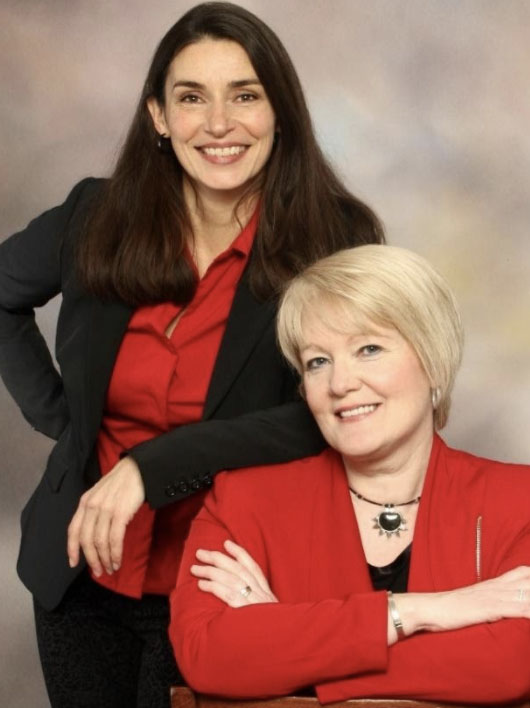Fresh from writing my 175-page master’s thesis, my advisor called to tell me the defense would be 3-hours long and would involve a committee of 5 academic leaders from 3 faculties. It would begin with my half-hour opening presentation followed by 2.5 hours of being questioned by the committee.
As a skilled speaker, the presentation part didn’t bother me – after all, I had just spent 3 years living and breathing my subject matter. The question and answer session, however, was a recipe for high anxiety. Luckily, my speaking experiences taught me that preparation plays a huge role in calming nerves. So I spent weeks re-reading notable books and articles and madly scribbling highlights on sticky notes that soon covered entire walls of my office.
On the appointed day, I truly felt ready. My opening presentation was received positively, and I was feeling confident about the questions to come. Imagine my surprise, then, when none of the questions were about anything I had written in my thesis. Every single question was about things I didn’t mention: Why didn’t I include the research of X in my findings? Did I consider Y when developing my recommended model? What did I think the impact of Z might be if I had included it?
Share on facebook
Share on linkedin
Share on whatsapp
Share on twitter
Entrepreneurs need to be prepared for a similar experience when pitching to potential investors. While they definitely need to formulate answers to frequently asked questions, brainstorming a list of unexpected questions will go a long way in keeping stress levels down.
When you can’t answer a tough question from investors, they’re not likely to support you. They’re absolutely looking for evidence that you know your product and market, but they also want to feel confident that you can think on your feet. Most Pitch Coaches will tell you the same thing we do: Expect to get interrupted during your presentation.
STay up to date on the changing face of business
One key exercise we conduct with our clients is having them write a list of pitch questions they do not want to get – and then we drill them relentlessly in formulating great answers. It definitely makes for some stressful sessions, but by the time their pitch day arrives, they feel ready. When you anticipate the worst, nothing will shock you, and you will come across as thoughtful, thorough, and thrilling. After all, the point is to show investors than you fully understand the challenges, but you also want them to be excited about your idea.
Nowadays when I think back to my thesis defense, I’m proud of how I handled it. But even though I was able to answer all the questions, it was still super stressful and reinforced the importance of preparation. As a Pitch Coach, I vowed to share the lessons I learned that day with my clients: 1. Be prepared for the unexpected, and 2. Know all of your stuff – even if you’re not going to use that stuff in your product or service proposal.
Pitching is something that we all use in our lives whether that be pitching an idea to your business team or pitching where to go for dinner. Want to learn more about creating pitches that get results? Join Shona and her partner in OVATION, Jan Bailey, on October 14 for their Experts in Residence: Community & Creativity webinar delivered by SBX, Delivering Your Dynamite Pitch. You’ll learn a 4-step process for creating and delivering a successful pitch that will wow your audience!
ABOUT THE AUTHORS:
Jan Bailey & Shona Welsh
In their highly interactive workshops, OVATION speaker trainers have helped countless individuals transform their ability to connect to their audience and deliver authentic and meaningful messages with impact. Now, more than ever, communication with some oomph is an essential skill. At a time when our emotions swing from overwhelmed to irrational, our ability to communicate effectively follows suit and it can be hard to remove the anger, frustration or even fear from our voice, let alone from our message … and that can have all manner of consequences.
Jan Bailey BA, MAEd is a communication and speaking expert who has designed and delivered hundreds of workshops
internationally on public speaking, stage presence, on-camera presentations, and communication. Along with writing and
producing a ten-part career development series of books, Jan’s 27-year career has involved extensive on-camera experience
as a television host along with being a long-time professor of communications.
Shona Welsh, BA, MCEd, CHRL, CCC is a communication and speaking expert who has won numerous speaking, writing and
learning design awards. The author of several books and designer/facilitator of hundreds of international workshops in
speaking and communications, she has held international senior executive positions over three decades. She teaches
extensively about leadership, communications, and innovation with numerous universities and colleges.




